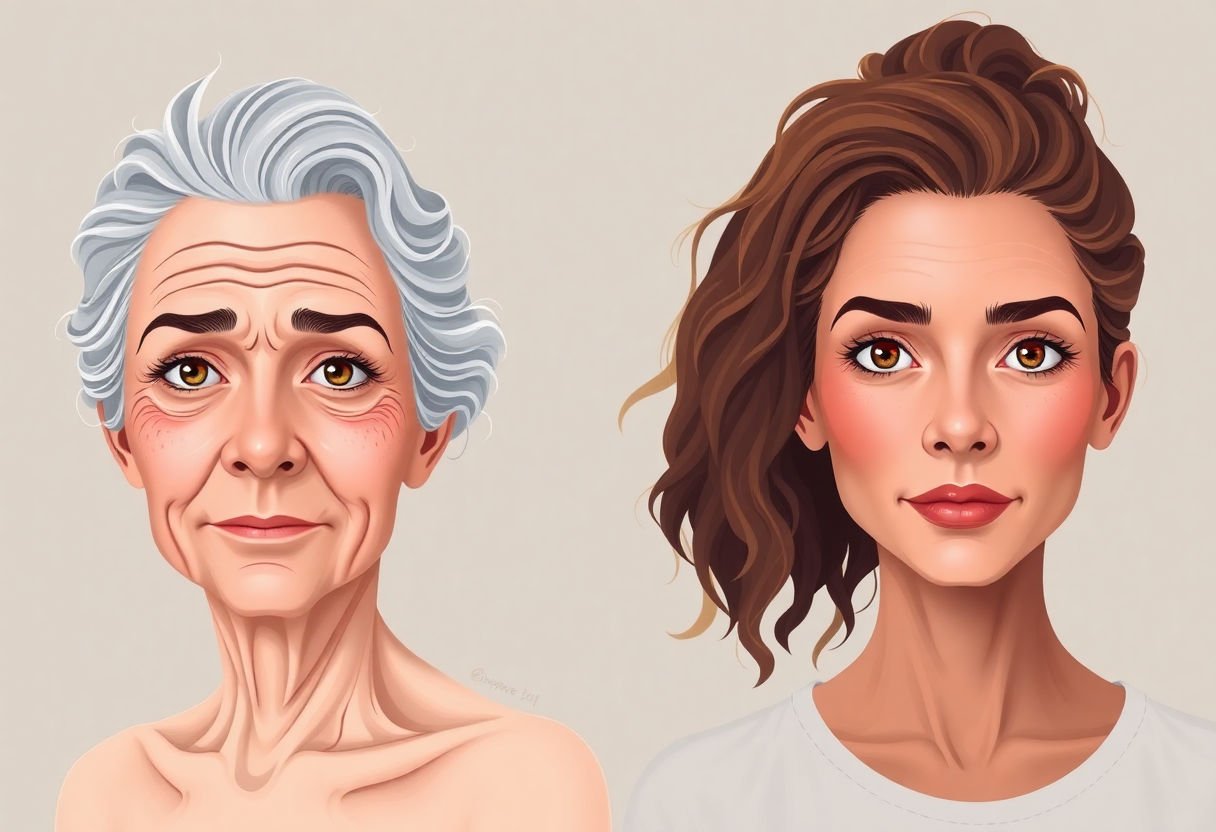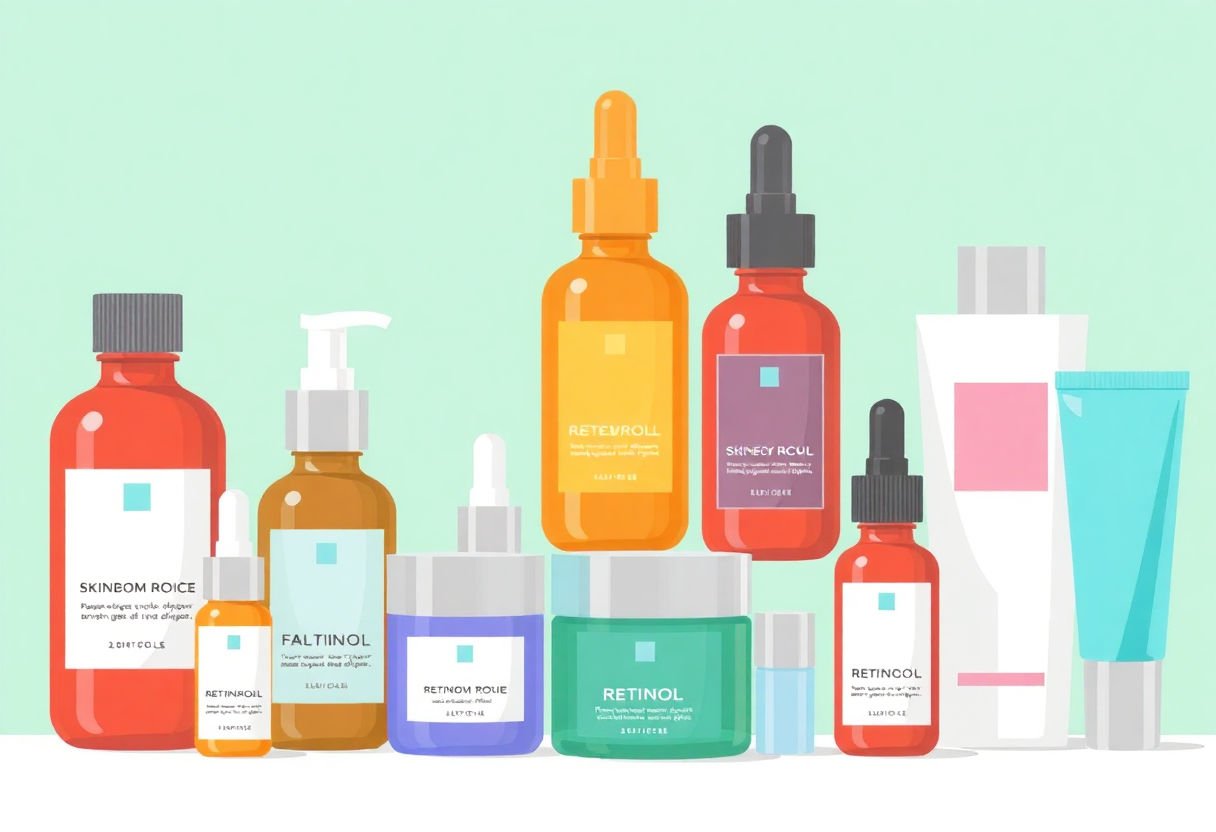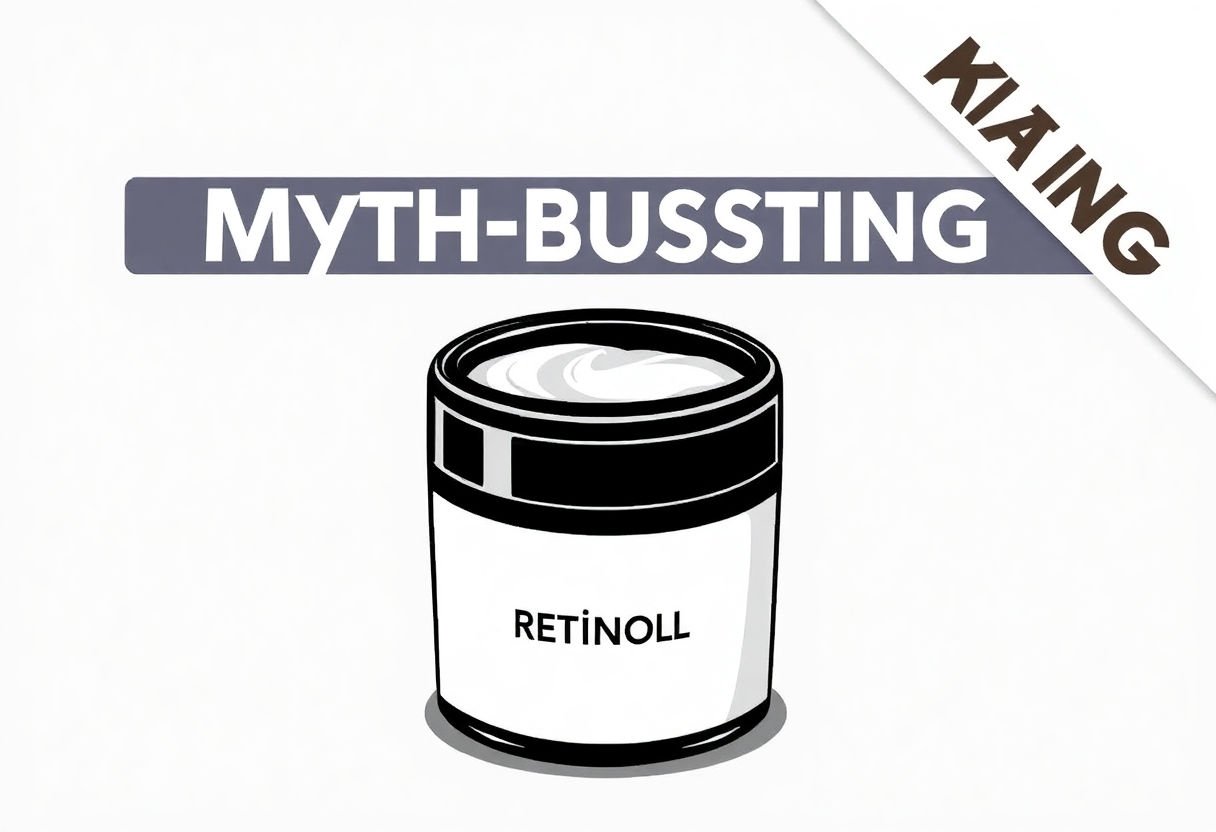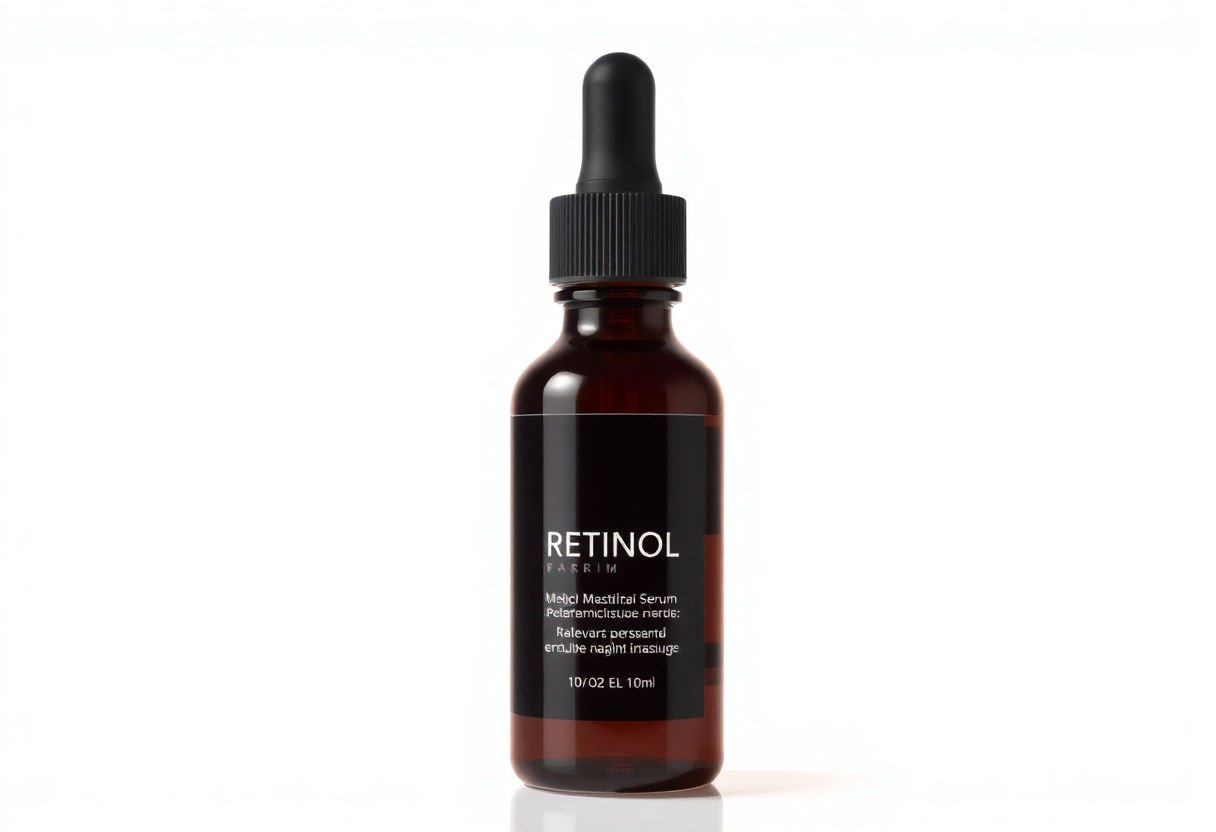Retinol is a powerful skincare ingredient. It smooths skin and reduces signs of aging. Many people use it on their face, but it also benefits the body. It helps improve skin texture and reduces dark spots. With the right usage, retinol makes skin look fresh and youthful. This article will explore these benefits and how to use retinol safely. Understanding its role in skincare can make a big difference. Dive in to learn all about body retinol benefits and how to incorporate them into your routine.
Key Takeaways
- Retinol helps smoothen and even out skin texture by promoting cell turnover.
- It works to lessen hyperpigmentation, making dark spots fade over time.
- Retinol reduces signs of aging, such as fine lines and wrinkles, by boosting collagen.
- When used correctly, retinol pairs well with other skincare products for enhanced effects.
- Misconceptions place retinol in a negative light, but correct usage leads to great results.
What is Retinol?

Retinol is a form of Vitamin A. You find it in many skincare products. It helps keep skin looking youthful and fresh. Dermatologists often recommend it.
Imagine your skin as an apple. Retinol helps protect the “skin” of the apple from spots and wrinkles. This keeps it shiny and smooth.
Retinol boosts skin cell turnover. This means it helps clear old skin cells so new ones can grow. This process makes your skin tone even and smooth. It can feel like having the smooth, fresh look after a good night’s rest.
Here are some effects of using retinol on your skin:
- Smoother texture: Retinol helps refine your skin’s surface.
- Reduced blemishes: It helps clear out blocked pores.
- Fewer wrinkles: Retinol boosts collagen, making fine lines less noticeable.
Users often apply it at night. This gives your skin time to absorb it while you sleep. Like watering plants at night, your skin can drink up retinol better in the dark.
Some may feel a slight tingle or dryness when starting with retinol. Think of it as a workout for your skin. It takes time to get used to it. Begin slowly and follow with a gentle moisturizer.
In short, retinol plays an important role in skincare. It helps renew and enhance your skin’s glow.
How Retinol Benefits Face and Body Skin
Retinol brings a lot of benefits to both facial and body skin. It works like a superhero, helping you look your best. Here are some ways retinol helps your skin:
Improving Skin Texture
Retinol acts like a scrub, but for your skin cells. It gets rid of old skin cells to make room for new ones. This helps your skin feel soft and smooth. It’s like having a new layer of skin that glows and feels fresh.
Reducing Hyperpigmentation
Dark spots on your skin can make it look uneven. Retinol helps even out skin tone by reducing dark spots and hyperpigmentation. Imagine a pencil eraser gently fading those spots away. Over time, your skin will look more even and bright.
Combatting Aging Signs
Wrinkles and fine lines can make us feel old before our time. Retinol acts like an iron for your skin, smoothing out those pesky lines. It boosts collagen production, which gives your skin strength and elasticity. So, instead of sagging or wrinkling, your skin stays firm and lively.
Retinol is a great addition to any skincare routine. It’s like having a trusty tool that keeps your skin looking great, whether on your face or body. Always remember to start slow with retinol and listen to your skin’s needs. Each person’s skin is unique, so take your time and enjoy the wonderful benefits safely.
Improving Skin Texture
Retinol works wonders for your skin texture. It acts like a coach for the cells, telling them to renew and regenerate. This process leaves your skin feeling smooth and soft. You can compare it to polishing a cloudy window until it shines bright.
Imagine your skin like a puzzle. Sometimes, the pieces do not fit perfectly, leaving bumpiness. Retinol steps in and helps each piece find its place. It does this by boosting cell turnover. New skin cells replace the old ones. This helps tone and texture improve over time.
Users often report noticeable changes after using retinol. They describe skin that feels silky, like a sheet of new paper. Lines and rough spots fade, giving a more even look. It is not quick magic, but the results last.
You should avoid using too much retinol at once. Start slowly. Use it a few evenings a week. Always follow with a good moisturizer to keep skin hydrated.
Patience plays a key role here. Like planting a seed and watching it grow, the glow unfolds over weeks. Keep in mind that some servings of retinol need guidance from a dermatologist, especially if your skin is sensitive.
Retinol acts as a craftsman for your skin. It carves a smoother, glowing version with consistent care and effort.
Reducing Hyperpigmentation

When you worry about dark spots on your skin, retinol might help. It acts like an eraser for those unwanted marks. Hyperpigmentation means some areas of your skin look darker than others.
Retinol helps by speeding up new skin cell growth. Imagine peeling an orange to see the bright fruit under the skin. Retinol helps peel away the old skin layers. This allows new, lighter skin to show.
Regular use keeps the skin looking even and smooth. You usually see results with patience. It takes time, but it works.
Why Choose Retinol for Hyperpigmentation?
- Gentle on Skin: It works without being too harsh.
- Effective Over Time: Changes become noticeable with continuous use.
- Versatile Uses: Works on the face and body.
Retinol not only helps with hyperpigmentation. It also improves overall skin tone. That way, the skin appears fresh and bright. Some folks worry about irritation. Start with a lower dose to minimize any discomfort.
Remember, retinol needs a few weeks to show effects. Always use sunscreen when you step outside. It protects retinol-treated skin from the sun.
Combatting Aging Signs

Retinol acts like a superhero when it comes to fighting aging signs. You might notice fine lines creeping up on your skin. Retinol helps smooth them out. Think of it as an iron for your skin. It works hard on those lines and wrinkles.
Fine lines often appear around eyes or mouth. Wrinkles might show on the forehead. Retinol encourages skin cells to renew. This process smooths skin over time. Skin looks and feels younger.
Retinol goes deep. It boosts collagen production, the magic word for skin’s strength. Collagen keeps skin firm like a trampoline. Bouncy and strong. As we age, collagen levels drop. Retinol says no way to that. It helps skin keep its bounce.
Here’s what retinol can do for your skin:
- Smooth Fine Lines: Gently irons out tiny lines that pop up with age.
- Enhance Skin Firmness: Helps skin stay firm by boosting collagen.
- Improve Skin Texture: Gives smoother, even texture.
Consider an example. Imagine a grape. Young skin is like that grape – firm and smooth. With age, the grape becomes a raisin – wrinkled and saggy. Retinol works to keep your skin more like a grape.
Apply retinol gently. A pea-sized amount is enough. Use at night for best results. Skin may need time to adjust. Start slow. Soon, you’ll see smoother and youthful skin. Retinol cannot rewind time, but it can help your skin age beautifully and gracefully.
Usage Considerations
When you start using retinol on your body, start slow. Your skin might need time to get used to it. Use it once or twice a week at first. See how your skin reacts. If everything seems fine, you can use it more often.
Choose the right product based on your skin type. Some retinol products are stronger than others. Pay attention to what your skin needs. Also, make sure the retinol product is suitable for body use, as some are meant only for the face.
Always apply retinol at night. Sunlight can make retinol less effective and make your skin more sensitive. Nighttime application gives the product time to work without sun exposure.
Remember to moisturize. Retinol can make your skin dry. Follow it up with a good moisturizer to keep your skin hydrated. This will help reduce any dryness or peeling.
Sun protection is a must. Retinol can make your skin more sensitive to the sun. Use sunscreen every day, even if it is cloudy or you are indoors.
If irritation occurs, take a break. Let your skin recover. Over time, your skin may adapt, and you can try using retinol again.
Consider consulting a dermatologist if you have sensitive skin or conditions like eczema. They can recommend the best approach for your needs. Always be cautious and observe how your skin responds.
Combining Retinol with Other Skincare Products

Combining retinol with the right skincare products boosts results. Many people want the best from their skincare routines. Here’s how to make the most of retinol.
Moisturizers: Retinol can dry out your skin. Using a good moisturizer helps keep your skin hydrated. Apply retinol first, then layer a rich moisturizer on top. Look for moisturizers with ingredients like hyaluronic acid or ceramides. These help lock in moisture.
Sunscreen: You must use sunscreen daily when using retinol. Retinol makes your skin more sensitive to the sun. Choose a broad-spectrum sunscreen with an SPF of 30 or higher. Apply it every morning. This protects your skin from UV damage and prevents dark spots.
Gentle Cleansers: Choose mild cleansers to clean your skin. Harsh cleansers can irritate your skin when used with retinol. This leads to redness and peeling. A gentle cleanser washes away dirt without stripping your skin’s natural oils.
Vitamin C: Some people use vitamin C with retinol. Apply vitamin C in the morning and retinol at night. Vitamin C brightens the skin, while retinol helps smooth it. Together, they give a glowing, youthful look.
Niacinamide: Niacinamide pairs well with retinol. It helps soothe and calm the skin. This is great if retinol causes irritation. Use them at different times or mix a drop of niacinamide with your moisturizer.
Combining these products creates a balanced skincare routine. Your skin feels and looks better. Always patch-test new combinations on a small skin area first.
Keep it simple. Pay attention to how your skin responds. Adjust as needed.
Common Misconceptions About Retinol

Many people have misconceptions about retinol. These misunderstandings can lead to confusion and misuse. Here are some common myths and the truths behind them:
-
Retinol thins the skin: Many believe retinol makes skin thin. This is not true. Retinol helps speed up cell turnover. In fact, it can strengthen the skin by boosting collagen.
-
It only works for wrinkles: While retinol is famous for fighting wrinkles, it does much more. It helps with acne, evens out skin tone, and gives skin a smoother texture.
-
Stronger is better: Some think using more retinol fast-tracks results. This belief can lead to irritation. Start with a low concentration to let the skin adjust.
-
Avoid retinol in summer: People often shy away from retinol in sunny months. While sun makes skin more sensitive, using sunscreen can help. Retinol and sunscreen make a good team.
-
Immediate results: Changes do not happen overnight. Skin improvement takes time. Seeing results may take weeks or even months.
Retinol offers many benefits but understanding it correctly is key. Be patient. Start slow. Overcome these myths and use retinol wisely.
Conclusion
Retinol offers many benefits for body skin. It improves texture, reduces hyperpigmentation, and fights signs of aging. With the right use, retinol can transform skin, making it smoother and brighter. As skincare evolves, retinol remains a strong choice for body care. Incorporating it wisely into your routine can yield long-lasting results. Remember to start slowly and pair it with nourishing ingredients for the best outcomes. This approach will help you harness the full potential of retinol in your daily skincare.
Frequently Asked Questions
What is the main benefit of using retinol on the body?
Using retinol on the body makes your skin smoother and softer. It helps in reducing sun damage and blemishes.
How often should I apply retinol body products?
Start with two to three times a week to see how your skin reacts. If your skin is comfortable, you can increase usage slowly.
Can retinol cause dryness or irritation?
Yes, retinol can cause some dryness or itching. Use a good moisturizer to help. Start with a lower-strength product to avoid irritation.
Is it safe to use body retinol if I have sensitive skin?
Sensitive skin can react to retinol. Choose a gentle formula and use it sparingly. Always do a patch test first.
Should I use sunscreen when using retinol?
Yes, sunscreen is important. Retinol can make skin more sensitive to the sun. Use SPF 30 or higher every day.
